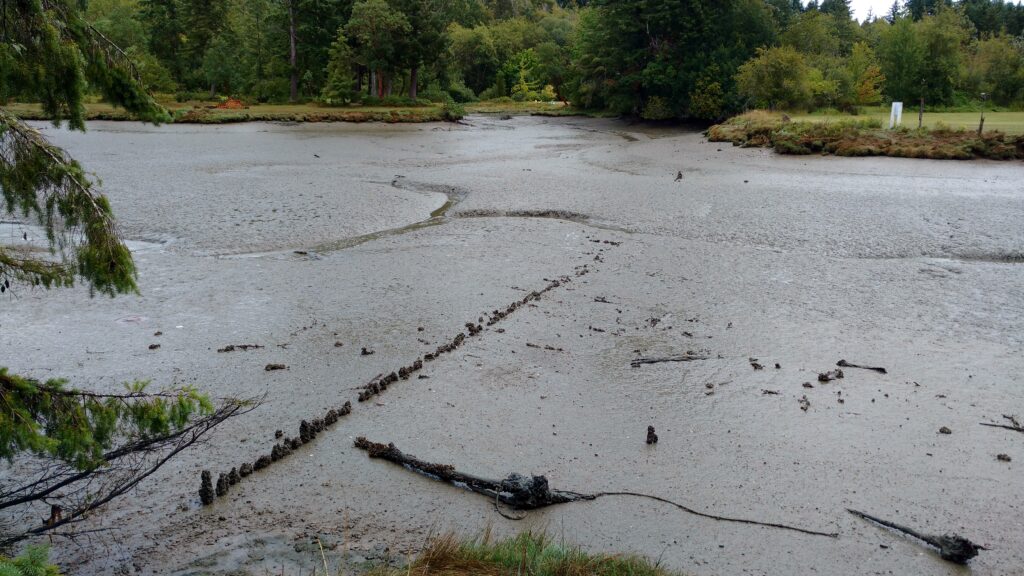On June 5, 2014, the Federal Court of Appeal (the “Court”) released its decision in Canada v. Kitselas First Nation, 2014 FCA 150, dismissing Canada’s application for judicial review of the decision made by the Specific Claims Tribunal (“Tribunal”).

Photo credit: Gordon Lyall
In Kitselas the Tribunal found that Canada breached its fiduciary obligations in excluding from Kitselas’ reserve a 10.5 acre parcel of land that was the site of the ancient village of Gitaus. The Tribunal had ruled that the lands the Kitselas people habitually used and occupied constituted a cognizable Indian interest, and that Canada had discretionary authority to say whether those lands would be allotted or not. In excluding those lands from Kitselas’ reserve, Canada (through Indian Reserve Commissioner O’Reilly) breached its fiduciary obligations.
Because this was the first judicial review of a decision of the Tribunal, a coalition of First Nations led by the Union of BC Indian Chiefs intervened in order to present evidence about the purpose of and background to the establishment of the Tribunal. The Coalition also argued that the history of reserve creation in British Columbia is unique and that in this claim the Tribunal properly had regard to Article 13 of the Terms of Union, 1871 and the instructions to reserve commissioners in concluding that Canada had fiduciary obligations in relation to Kitselas’ village lands.
The Court upheld all of the Tribunal’s conclusions of fact and law. It agreed with Kitselas, the Tribunal, and the Coalition that Canada had fiduciary obligations in the reserve allotment process, and had breached these obligations on the facts of this claim.
Federal Court of Appeal’s Decision
The Court recognized that Canada has fiduciary obligations to First Nations throughout the reserve creation process. Canada has legal obligations for those lands the Reserve Commissioners allotted, but also in relation to lands they failed to set aside, such as village sites and settlements. These obligations began in 1871 when British Columbia joined Confederation. The Court firmly rejected Canada’s arguments that attempted to minimize and limit its obligations in allotting reserves.
Drawing on arguments made by the Coalition, the Court referred to the unique history of reserve creation in British Columbia. Unlike in Ontario and most of western Canada, reserve creation in most of British Columbia did not result from a treaty process, but instead from the Crown’s unilateral undertaking, expressed in Article 13 of the Terms of Union, 1871, and in the various Crown instructions issued to implement that Article. Through this constitutional document, Canada assumed the primary role in the relationship between Aboriginal Peoples and the Crown, and sole responsibility over Aboriginal land interests in British Columbia. Article 13 is foundational; it is the root of Canada’s fiduciary obligations in the context of reserve establishment after Confederation.
The Court noted that there were no negotiations with First Nations to determine the parameters of the Colony’s and, later, Canada’s reserve allotment policy. The actual allocation of land for reserve creation purposes was largely left to the discretion of Crown officials acting pursuant to the instructions they received. Those instructions required Crown officials to take into account and have regard to First Nations’ actual land uses, and the purpose for which reserves were being created. When allotting reserves, Indian Reserve Commissioners were to have special regard to the habits, wants and pursuits of First Nations, as well as to the claims of white settlers (if any).
In this case, Indian Reserve Commissioner Peter O’Reilly excluded the 10.5 acre parcel of land from Kitselas’ reserve despite the fact that it was the location of Kitselas’ ancient village of Gitaus, and despite the fact that there were no claims of white settlers to those lands. The Tribunal recognized this as a breach of fiduciary duty, and so did the Court. In light of these facts, the Court agreed with the Tribunal’s reasoning that Kitselas had a cognizable interest in the 10.5 acres of land comprising the village site, and that this gave rise to a fiduciary duty of loyalty, good faith, full disclosure, and reasonable diligence.
Canada argued that because the reserve creation process involved both the federal and provincial governments, British Columbia should be at least partly liable for Kitselas’ losses. The amount of compensation and whether the Province is liable for any portion will be dealt with in the second phase of the hearing before the Tribunal; the Court therefore declined to rule on this issue.

Photo credit: Doane Gregory
Potential Implications
With this decision, the Court has firmly rejected the idea that fiduciary obligations only arise after reserves are “provisionally approved” ─ a minimalist position Canada has advanced for years as a basis for rejecting village and settlement claims. Article 13 and the instructions to Reserve Commissioners make it clear that Canada has fiduciary duties to First Nations at all times during the reserve allotment process, in regard to lands both reserved and those that weren’t reserved but should have been.
Throughout the decision, the Court emphasized that the Tribunal had done an extensive review of the evidence (relying both on historical documents as well as oral evidence), followed and applied the law as set out by the SCC in Wewaykum, and reached the correct legal conclusions with respect to the fiduciary duty owed. In upholding all of the Tribunal’s findings of fact and law, the Court has allowed the Tribunal the freedom to do the job it is mandated to do: promote reconciliation through the resolution of specific claims.
This important precedent should pave the way for claims dealing with the reserve allotment period ─ and in particular claims related to village and settlement lands that were not protected or reserved ─ to be resolved in the specific claims process.
This case summary provides our general comments on the case discussed and should not be relied on as legal advice. If you have any questions about this case or any similar issue, please contact any of our lawyers.
See CanLII for the Reasons for Judgement.